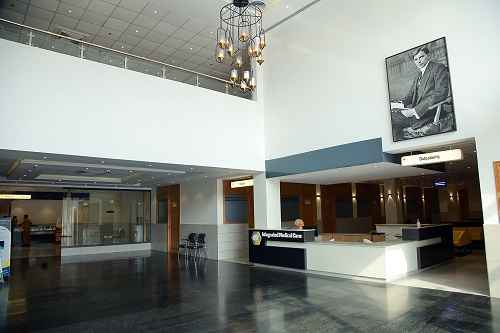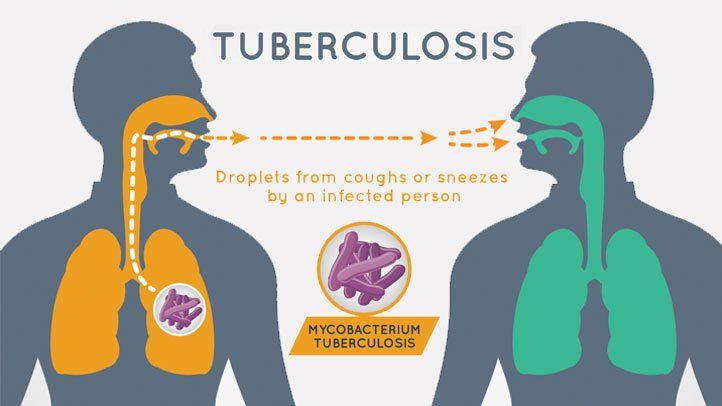- 11-Nov-22
A person becomes infected with tuberculosis (TB) by inhaling microscopic droplets from the cough or sneeze of an infected person. Although it mostly affects the lungs, it can also affect the stomach (abdomen), glands, bones, and nervous system.
What is tuberculosis?
The infectious disease tuberculosis can infect your lungs or other tissues and cause infection. Although it frequently affects the lungs, it can also harm other organs like the spine, brain, or kidneys. The Latin term for "nodule" or "anything that stands out" is where the word "tuberculosis" originates. TB is another name for tuberculosis. Although not everyone who contracts TB becomes ill, treatment is necessary if you do. You have latent or inactive tuberculosis if you are infected with the bacterium but don't exhibit any symptoms (also called latent TB). TB may appear to be gone, but it is actually dormant (sleeping) inside your body.
If you have active tuberculosis or tuberculosis disease, you are contagious, sick, and exhibit symptoms (TB disease).
Tuberculosis meaning in Urdu:
یہ بیماری جو بنیادی طور پر پھیپھڑوں کو متاثر کرتی ہے لیکن جسم کے دوسرے حصوں کو بھی ٹی بی متاثر کر سکتی ہے۔ یہ بیکٹیریا متاثرہ شخص کے کھانسنے اور چھینکنے سے ہوا میں پھیل کر دوسرے لوگوں کو متاثر کر سکتا ہے.
Types of tuberculosis:
A TB infection does not always mean that you will get sick. The illness comes in two different forms. How do TB symptoms start?
Latent TB: Although the germs are present in your body, your immune system prevents them from being transmitted. You are not contagious and you don't exhibit any symptoms. The infection is still there though and it might reactivate at some time. If you have HIV, have recently had an infection, have an atypical chest X-ray, are immunocompromised, or are in any other way at high risk for reactivation, your doctor will likely prescribe medication to stop active TB.
Active TB: As the bacteria grows and spreads, you get sick. Other people may develop the illness. 90% of cases are adult TB infections that are currently active.
Drug resistance or the inability of some medications to successfully treat the bacterial infection is another possibility with TB infections, whether latent or active.
Tuberculosis Signs and Symptoms:
Latent TB has no symptoms. If you have it, a skin or blood test can detect it.
Symptoms of active TB disease include:
- Coughing for longer than three weeks
- Pain in the chest
- Coughing up blood
- Feeling tired all the time
- Night sweats
- Chills
- Fever
- Loss of appetite
- Weight loss
Best Hospital in Lahore Pakistan
IMC Hospital is one of the most prestigious institutions in Pakistan which is known for its performance and outstanding results regarding the Pulmonology Department. Visit the Integrated Medical Care Hospital (IMC Hospital) and schedule a consultation.
The IMC Pulmonology and Critical Care Department is operated by an excellent team of American Trained consultants who bring along with them years of experience in pulmonology, sleep medicine, and critical care. Our state-of-the-art Intensive Care Unit (ICU) and Critical Care Unit (CCU) are designed according to the latest in high-dependency care. At IMC Pulmonology department consultancy is given in the areas of Blood Gas Analysis, Chest Intubation, General Pulmonary & Critical Care, Lung Biopsy, Pulmonary Hypertension, Pulmonary Rehabilitation, and Smoking Cessation Clinic. Other areas of expertise include Pulmonary Arterial Hypertension (PAH) and Pulmonary Vascular Diseases, Interstitial Lung Diseases (ILD), Connective Tissue Disease-Associated Interstitial Lung Diseases (CT-ILD), Advanced Lung Diseases, Lung Diseases in Immunocompromised Host.

 Map
Map










